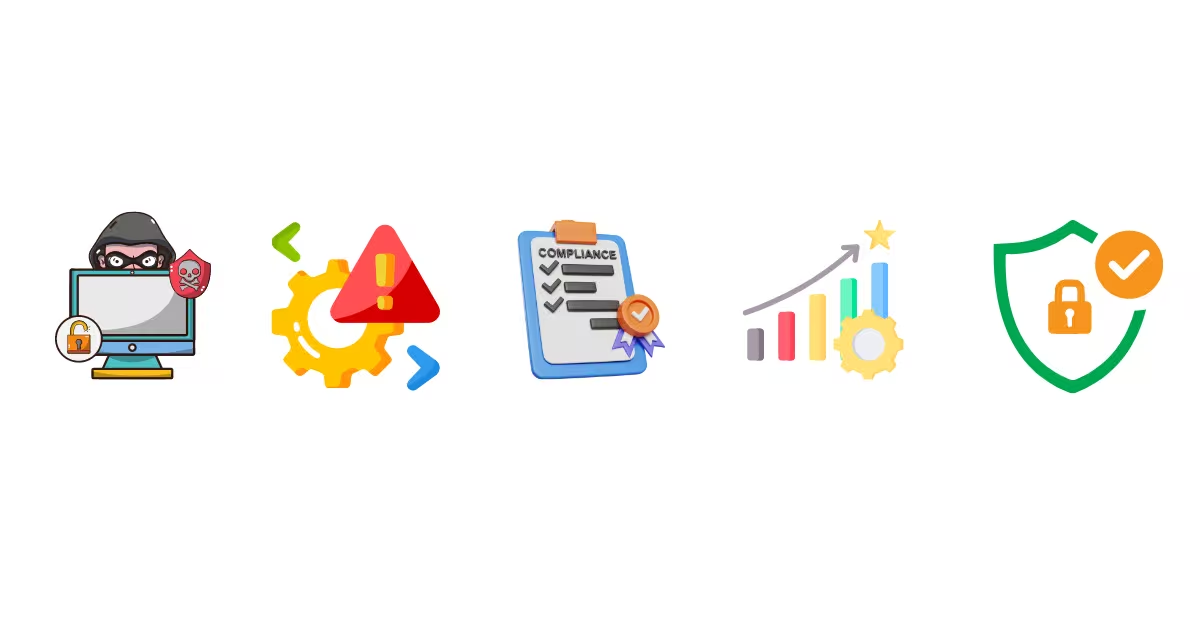
CALLGOOSE

CALLGOOSE
BLOG
25 September 2024 | James David
5 Minute Read
Introduction: The Financial Services Industry (FSI) is under regulatory pressure and needs to contend with more complex cyber risks in the current digital era. Platforms for automation and incident response have become essential tools for the FSI to avoid downtime, protect against cyberattacks, and guarantee compliance. The advantages of utilizing an advanced incident response and automation platform in the financial services industry are examined in this blog, along with the obstacles the sector must overcome and the reasons adopting these platforms is crucial.
The Need for Modern Incident Response in the Finance Industry:
Complicated Threat Environment: Financial institutions are prime targets for cybercriminals due to the vast amounts of valuable data they possess. Traditional security measures are often insufficient to combat sophisticated attacks, making it essential to adopt advanced incident response solutions.
Regulatory Compliance: Stringent regulations such as GDPR, PCI DSS, and SOX require financial institutions to promptly detect and respond to security incidents. Failure to comply can result in severe penalties and reputational damage, underscoring the importance of effective incident response frameworks.
Operational Continuity: Any downtime of financial services, whether brought on by a malware attack or a malfunctioning system, can have serious repercussions. Effective incident response procedures must be put in place in order to preserve business continuity and protect client confidence.
Benefits of Using a Modern Incident Response and Automation Platform
1. Rapid Response to Cyber Threats
2. Improved Incident Management
3. Enhanced Compliance and Reporting
4. Increased Operational Efficiency
5. Enhanced Security Posture
 Challenges Facing the Financial Services Industry Related to Incidents
Challenges Facing the Financial Services Industry Related to Incidents
1. Increasing Complexity of Cyber Threats
2. Regulatory Compliance
3. Resource Constraints
4. Evolving Technology Landscape
Why Embrace Modern Incident Response and Automation Platforms?
1. Proactive Cybersecurity
Early Threat Detection: These platforms enable early detection of threats, allowing organizations to respond proactively before they escalate.
Continuous Monitoring: Continuous monitoring helps organizations stay ahead of emerging threats and vulnerabilities.
2. Enhanced Incident Response Capabilities
Faster Response Times: Automation helps organizations respond to incidents faster, minimizing downtime and reducing the impact on operations.
Improved Coordination: Centralized incident management capabilities improve coordination among security teams, ensuring a more effective response.
3. Regulatory Compliance
Streamlined Compliance: These platforms streamline compliance efforts by automating compliance checks and reporting, helping organizations meet regulatory requirements more efficiently.
Audit Trail: An audit trail of all incident response activities helps demonstrate compliance with regulatory requirements.
4. Improved Operational Efficiency
Resource Optimization: Automation of routine tasks frees up security teams to focus on more critical tasks, improving overall operational efficiency.
Workflow Automation: Automation of incident response workflows helps organizations respond to incidents more effectively, reducing manual errors.
5. Enhanced Security Posture
Continuous Improvement: These platforms enable organizations to continuously improve their security posture by analyzing incident data and identifying areas for improvement.
Threat Intelligence Integration: Integration with threat intelligence feeds helps organizations stay updated on the latest threats and vulnerabilities, enhancing their ability to defend against cyber-attacks.
Future-Proof Incident Response for Financial Services
As technology evolves and cyber threats become more sophisticated, the incident response landscape in the Financial Services Industry (FSI) is expected to undergo significant changes. Here are some future trends in incident response for the FSI:
1.AI-Powered Incident Response: Artificial intelligence (AI) and machine learning (ML) technologies will play a crucial role in incident response. AI-powered systems can analyze vast amounts of data in real-time to detect anomalies and potential threats more effectively.
In the FSI, AI can be utilized to identify patterns of fraudulent activities, enabling faster response times and better protection of sensitive financial data.
2.Automation and Orchestration: Automation and orchestration capabilities will become more advanced, allowing organizations to automate routine incident response tasks and orchestrate complex workflows seamlessly.
This trend will help streamline incident response processes in the FSI, reducing manual errors and response times. Automated incident response playbooks can be tailored to specific types of incidents, enabling a more efficient and consistent response.
3.Integration of Threat Intelligence: The integration of threat intelligence feeds into incident response platforms will become more prevalent. By leveraging real-time threat intelligence data, organizations in the FSI can stay ahead of emerging threats and vulnerabilities.
Threat intelligence integration enables faster detection and response to cyber-attacks, enhancing overall security posture.
4.Cloud-Based Incident Response: With the increasing adoption of cloud services in the FSI, incident response processes will need to adapt to the cloud environment. Cloud-based incident response platforms offer scalability, flexibility, and accessibility, allowing organizations to respond to incidents across distributed and hybrid environments.
Cloud-based solutions also enable centralized incident management and collaboration among geographically dispersed teams.
5.Zero-Trust Security Model: The adoption of a zero-trust security model will become more widespread in the FSI. This model assumes that threats can come from both inside and outside the network and requires continuous verification of user identity and device security posture.
Incident response strategies will need to align with the principles of zero trust, focusing on granular access controls, least privilege access, and continuous monitoring of network activities.
Conclusion:
In conclusion, modern incident response and automation platforms are essential for the FSI to defend against cyber threats, ensure compliance, and improve operational efficiency. By embracing these platforms, organizations can enhance their security posture and better protect their systems, data, and customers.
By leveraging different tools and using Callgoose SQIBS Incident Management and Callgoose SQIBS Automation Platform , you can set up robust event-driven and Incident auto-remediation automation workflows to enhance efficiency, reliability, and responsiveness in your IT operations.
With powerful On-Call scheduling, real-time Incident Management, and Incident Response capabilities of Callgoose SQIBS, ensures your systems are always on and responsive.
Refer to Callgoose SQIBS Incident Management and Callgoose SQIBS Automation for more details
Learn how Callgoose SQIBS can help in the Financial Industry. Sign up for a our Freemium Plan today and experience the results. No credit card required.
Callgoose SQIBS is an effective On-Call schedule and Incident Management and Response Platform keep your organization more resilient, reliable, and always on. It can integrate with any software's or Tools including any AI to reduce alert noise , automate the workflows and improve the effectiveness of escalation policies for global teams.

CALLGOOSE
SQIBS
Advanced Automation platform with effective On-Call schedule, real-time Incident Management and Incident Response capabilities that keep your organization more resilient, reliable, and always on
Callgoose SQIBS can Integrate with any applications or tools you use. It can be monitoring, ticketing, ITSM, log management, error tracking, ChatOps, collaboration tools or any applications
Callgoose providing the Plans with Unique features and advanced features for every business needs at the most affordable price.
Unique Features